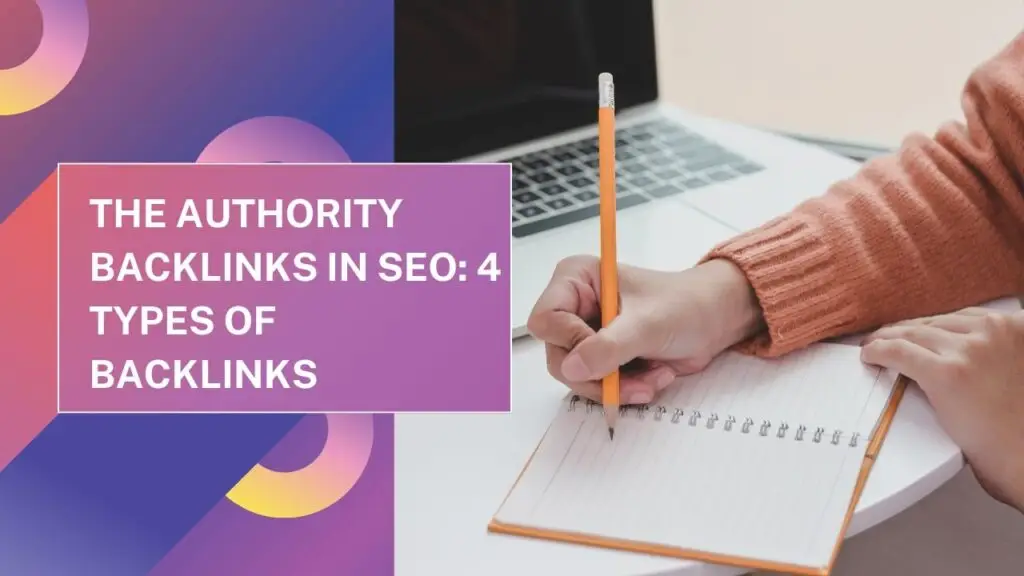Keywords are the foundation of successful SEO, acting as the guiding force behind every aspect of your search engine optimization strategy. From keyword research and competitive analysis to on-page optimization and content creation, understanding how users search for information relevant to your business is crucial for achieving higher rankings in search engine results pages (SERPs). By aligning your website content with the specific terms and phrases your target audience is using, you pave the path for greater visibility and organic traffic.
Effective search hinges on identifying and strategically incorporating relevant keywords throughout your website. This includes optimizing page titles, headings, meta descriptions, and the body of your content to reflect those high-value search terms that are most likely to attract your ideal customers. By speaking the language of your target audience, you make it easier for search engines to understand the context and relevance of your content, leading to improved rankings and increased organic visibility.
However, it is not just about stuffing keywords into your website; it’s about creating valuable, informative, and engaging content that satisfies user intent. By understanding the motivations behind user searches, you can tailor your content to provide the information they seek, answer their questions, and establish your website as a trusted source of knowledge within your industry. Ultimately, a successful SEO strategy combines keyword optimization with high-quality content creation to deliver a seamless and rewarding online experience that attracts visitors and keeps them coming back for more.
Importance of Keywords:
User Intent:
Keywords are more than just words; they are windows into the minds of users, revealing their motivations and desired outcomes in the vast digital landscape. Whether someone types “how to bake a cake” or “best cake shops near me,” their choice of keywords provides invaluable clues about their intent. Are they seeking information, looking to buy something, or hoping to connect with a local business? Understanding the “why” behind a search is just as crucial as understanding the “what.”
Search engines leverage this understanding of keyword intent to deliver highly targeted and relevant results. By analyzing the nuances of language and context, they can differentiate between users seeking general information and those ready to make a purchase, ensuring that search results align closely with the user’s needs and guide them towards a satisfying online experience.
Content Relevance:
Keywords act as the crucial bridge between a user’s information needs and the vast landscape of online content. By dissecting the specific words and phrases within a search query, search engine algorithms gain invaluable insights into what the user is truly seeking. This analysis goes beyond simply matching exact keywords; sophisticated algorithms consider context, user intent, and even related concepts to determine which web pages are the most relevant and valuable for that particular search.
This meticulous keyword analysis forms the foundation of how search engines determine the order of websites displayed in search engine results pages (SERPs). By prioritizing the most pertinent and valuable content based on keyword relevance, search engines ensure that users are presented with the information they need efficiently and effectively, creating a more satisfying and productive search experience.
SEO Strategy:
A successful SEO strategy is a multifaceted approach that aims to increase a website’s visibility in search engine results pages (SERPs) and attract more organic traffic. The first step involves thorough keyword research to identify the terms your target audience is using, understanding search intent, and analyzing competitor strategies. This forms the foundation for optimizing your website’s content, ensuring it is relevant, informative, and engaging for both users and search engines.
Beyond content, technical SEO is crucial. This involves optimizing your website’s structure and code for search engine crawlers, improving site speed and mobile-friendliness, and ensuring a positive user experience. Think of it as building a strong foundation and a welcoming environment for both search engines and your human visitors.
Finally, a successful SEO strategy incorporates off-page optimization, focusing on building your website’s authority and reputation. This involves earning backlinks from reputable websites, establishing a strong social media presence, and engaging in online communities relevant to your industry. By consistently implementing and refining these strategies, you can improve your website’s rankings, attract a targeted audience, and achieve your online goals.
While primary keywords are essential for establishing a broad online presence, long-tail keywords are the secret weapon for attracting highly targeted traffic and driving conversions. These longer, more specific phrases act like laser beams, zeroing in on niche audiences who are further along in their decision-making process. Think of it this way: a user searching for “shoes” is likely just browsing, while someone typing “best hiking boots for women with flat feet” is ready to buy.
Long-Tail Keywords:
Long-tail keywords often have lower search volume compared to their broader counterparts. However, this apparent disadvantage is actually a strength. Lower search volume means less competition, making it easier to rank higher in search results for those specific phrases. Moreover, users searching with long-tail keywords are typically highly motivated and have a clear intent, resulting in higher conversion rates and a greater return on your SEO efforts.
By strategically incorporating long-tail keywords into your website content, blog posts, and product descriptions, you can position your business to capture these valuable, niche audiences. This targeted approach not only drives traffic but also attracts visitors who are genuinely interested in what you offer, increasing the likelihood of conversions, leads, and ultimately, business growth.
Keyword Placement:
Think of keywords as signposts that guide search engines through the content of your website. Strategic keyword placement, much like a well-planned trail, helps these digital explorers quickly grasp the main themes and topics covered on each page. By incorporating relevant keywords into essential elements like page titles, headings, meta descriptions, and naturally within the body of your content, you provide clear signals to search engines about what each page is truly about.
This clarity is crucial for achieving higher visibility in search engine results pages (SERPs). When search engines can easily understand the relevance of your content to a user’s search query, they are more likely to rank your website favorably. Strategic keyword placement ensures that your website appears for the searches that matter most to your target audience, driving more relevant traffic and increasing the chances of attracting potential customers.
Keyword Evolution:
The digital landscape is in constant flux, with language trends and online behaviors evolving at a rapid pace. This ever-changing environment necessitates a dynamic approach to keywords. Staying ahead of the curve involves continually monitoring how users search for information related to your industry. By identifying emerging keywords, trending topics, and new ways people phrase their queries, you gain valuable insights for adapting your SEO strategy and ensuring your content remains fresh and relevant.
Integrating these evolving keywords into your website content, meta descriptions, and even social media posts keeps your online presence aligned with current search trends. This adaptability is crucial for maintaining visibility in search engine rankings, as it demonstrates to search engines that your website offers up-to-date and valuable information that caters to the evolving needs of users. By embracing the dynamic nature of keywords, you ensure your website remains competitive and continues to attract a steady stream of targeted traffic over time.
Tools and Analytics:
Navigating the vast ocean of keywords requires more than just intuition; it demands data-driven insights. This is where keyword research tools and analytics become indispensable allies in your SEO journey. These powerful tools empower you to delve beyond guesswork, providing concrete data on search volume, keyword difficulty, and user behavior. You can uncover hidden opportunities, identify which keywords are driving the most traffic to your website, and even track how your rankings fluctuate over time.
The insights gleaned from these tools are invaluable for refining your SEO strategy and maximizing your online visibility. By understanding which keywords resonate most with your target audience and generate the highest engagement, you can optimize your content, focus on high-impact opportunities, and measure the effectiveness of your efforts. This data-driven approach ensures that your SEO strategy is always evolving and adapting to the ever-changing digital landscape.
Avoiding Keyword Stuffing:
Keywords are undoubtedly crucial for SEO success, but like any powerful tool, they must be used judiciously. Overloading your content with an unnatural density of keywords, a practice known as keyword stuffing, is more likely to hinder than help your online visibility. While it might have been a viable tactic in the early days of search engines, today, it’s a surefire way to raise red flags and incur penalties.
Search engines are now highly sophisticated at detecting keyword stuffing, recognizing it for what it is – a manipulative tactic that compromises the user experience. When a webpage is crammed with repetitive or irrelevant keywords, it creates a jarring and unnatural reading experience for visitors. This often leads to higher bounce rates, lower engagement, and ultimately, signals to search engines that your website is not providing genuine value.
Instead of resorting to keyword stuffing, prioritize creating high-quality content that seamlessly incorporates relevant keywords in a natural and informative way. Focus on addressing your audience’s needs, providing valuable information, and using keywords strategically to enhance clarity and relevance – not to game the system. Remember, a positive user experience is just as crucial for SEO success as keyword optimization, so prioritize your audience and let genuine value guide your content creation.
Conclusion:
Keywords are the linchpin of a successful online presence, acting as the crucial bridge connecting what users seek and what websites offer. They are the language we use to communicate with search engines, conveying the topics we write about, the products we sell, and the information we share. Without a deep understanding of keywords, even the most brilliant content risks getting lost in the vast digital landscape, unseen and unappreciated.
Effective SEO and digital marketing strategies hinge on identifying the right keywords – those that resonate with your target audience and align with their search intent. By carefully selecting and strategically incorporating these keywords into your website’s content, meta descriptions, and even social media profiles, you send clear signals to search engines about the value and relevance of your online presence.
This targeted approach ensures that your website appears prominently in search results when potential customers are actively seeking information, products, or services related to your business. In essence, keywords are the key to unlocking greater visibility, driving targeted traffic, and ultimately, achieving online success by connecting with the right audience at the right time.





